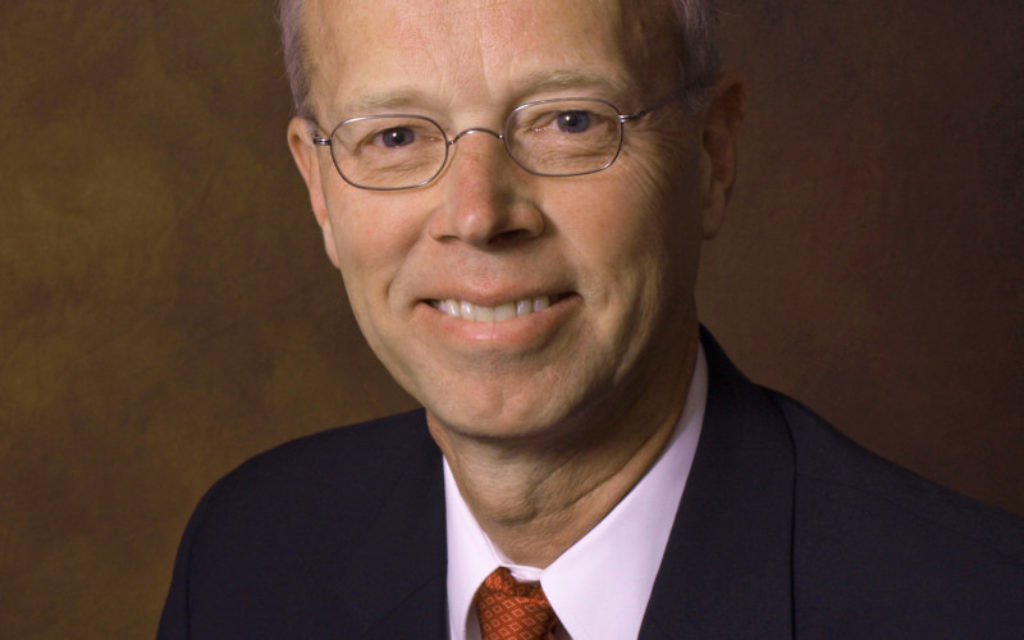‘You Need to Have Pain,’ Doctor Says
In a concerted effort to curtail addiction to opioids, an Atlanta pain specialist is taking a tough approach with patients who demand painkillers.
“I’ve swung now towards telling patients, ‘You need to have pain. Pain is a signal from your body that something is not right, and I can make you comfortable, but if I do, you’ll be comatose or dead,’ ” physician James L. Carlson said in an interview.
Carlson, who works in pain management and anesthesiology at Emory St. Joseph’s Hospital, added: “I say it in a pleasant way, but that summarizes where I am and where I think medicine has gone wrong. It got to the point where even the Joint Commission on Accreditation of Hospitals got on board with this idea that no one should be in pain.”
Get The AJT Newsletter by email and never miss our top stories Free Sign Up
Narcotic painkillers such as oxycodone have a strong potential for abuse and subsequent addiction. The National Institute of Drug Abuse estimates that 81 percent of the global supply is consumed in the United States, with a large number of legal prescriptions being diverted to street users.
“I’ve practiced pain now for 30 years, and it has gone from just doing procedures and injections to, in the early-to-mid-90s, drug companies promoting, with very little supporting evidence by the medical community, the unlimited use of oxycodone and OxyContin, with no ceiling required in terms of dosing,” Carlson said. It’s “the concept that no one should be expected to have pain. If you’ve paid any attention to society, the results of that have been horrific.”
The overprescription of opioid painkillers is directly related to the national epidemic of heroin addiction and overdose.
“Huge doses of narcotics are being given to patients,” the doctor said. They get hooked on these meds and become dependent on them, and they need them to maintain the euphoria they get.”
Current studies show that little benefit is gained by prescribing opioids for pain, Carlson said. “It’s almost impossible to verify that anyone with moderate to large doses of opioids functions any better. In fact, they become depressed, have all sorts of negative side effects, their hormones get out of balance, they get constipated, they have fatigue, and they don’t interact with family. So in trying to treat pain, you almost destroy their lives.”
That is when many turn to heroin, he said. “What happens is, you truly become physically dependent on an opioid once you’ve done it for a while, and you go into withdrawal. It’s uncomfortable, psychologically and physically. To prevent that withdrawal, the cheapest drug out there is heroin. Even in small towns and rural areas, heroin has become the drug of choice. It’s cheap and readily available.”
Added to the opioid mix is synthetic fentanyl. “It’s an incredible medicine that we use as anesthesia in the operating room every day. It’s hard to get normally, and it only comes in IV form and a patch,” Carlson said. “You can get the components illegally shipped from China through Mexico, and the (U.S.) government is trying to prevent it. It’s incredibly potent and gives you a really good high. Tons of people have been overdosing on it recently.”
The pain problem involves young and old. “When I started doing this work, I would see a lot of patients who were elderly. A lot of nice Jewish ladies who would come all dressed up, and they had terrible knees or bad backs, and their insurance would expect me to fix their pain and make something happen, that I might have a magic wand or a potion for pain management.
“In fact, the only thing you can do is get active: Use the pool, live your life, stay away from doctors. You can get some temporary relief from a pain pill, but in a few weeks you become adapted to it. That becomes your new baseline.”
Rampant drug use by adults has affected children, Carlson said. “There’s always kids who’ll take them from their parents, and they’ll try them and give them to their friends. Middle school kids are getting high and dependent on the same drugs. In my family I’ve got three nieces and nephews who’ve become addicted to opioids.”
He said the medical profession is “just coming to grips with treating pain that doesn’t involve opioids. Physicians are really struggling with how to deal with this issue right now. We know what we’ve been doing is wrong and hurtful more than helpful. We have to encourage patients to do what they need to do, lose weight, you know, exercise, do all the things we know are good for you vs. just taking a pill. That just masks the symptoms.”






comments